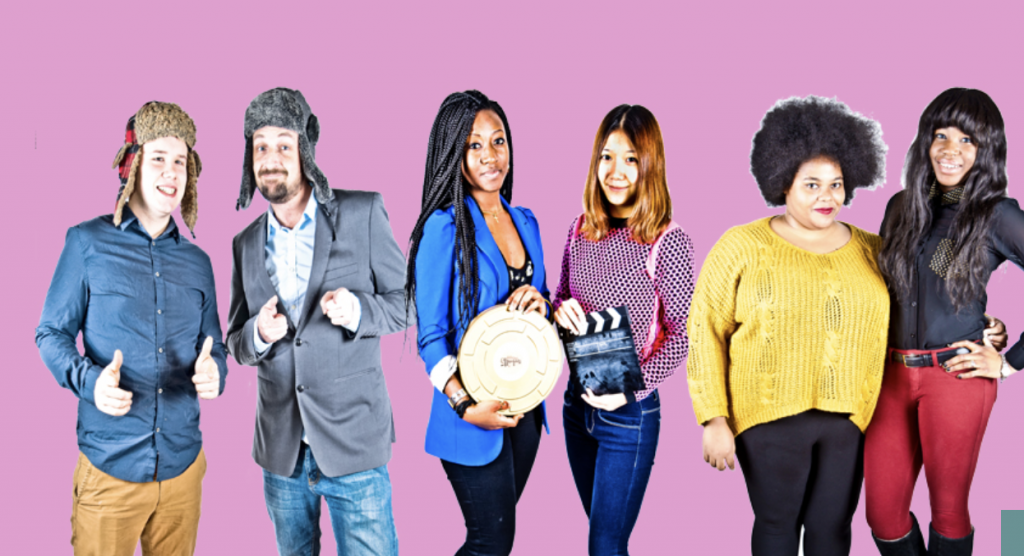Now Hiring Post Doc Fellows!
The Vulnerable Media Lab located in the Department of Film and Media at Queen’s University is inviting applications to a 1-year MITACS Accelerate Post-Doctoral Fellowship to work with our partners Reelout Queer Film Festival and Archive/Counter Archive to begin August 1, 2021.
Candidates must have defended their dissertation by July 15th, 2021. (This is a firm deadline)
The successful candidate is expected to focus on research into archival processes, including ethical best practices and community-based methods for digitization, restoration, preservation, metadata production, and data management for analog and/or digital-born media, with particular engagement with LGBTQ2, Indigenous, Black or BIPOC communities in the Americas.
We invite applications from archivists and/or digital humanities interdisciplinary scholars who have earned a doctorate in one of the following areas, in order of priority: media preservation/archival or information studies, museum studies, communications, digital media, cultural studies, art history or related discipline, and have expertise in such fields such as asset/collections management, Indigenous knowledge architectures, digital media production. The position requires that the candidate has strong skills and experience in community arts engagement, and familiarity with open-source content management systems and, ideally, post-production software. Required soft skills include outstanding writing and communication skills, a strong collaborative working style, good time management, and adaptability. Working knowledge of Spanish or French would be considered an asset.
This Post-Doctoral position will include opportunities to produce publications and curate media online and onscreen, participate in conference presentations and directly contribute to content design for VML and Reelout’s platforms, as well as for Archive/Counter-Archive’s hybrid publications. Working with a range of Queen’s partners (including Art Conservation, Queen’s Library and Archives, The Agnes Etherington Art Centre, and the Centre for Advanced Computing) and with graduate students in Cultural Studies, Art History, Art Conservation, and Screen Cultures and Curatorial Studies, the successful candidate will be well positioned to develop their projects and expand their skills. It is expected that the candidate will divide their time between the Vulnerable Media Lab on Queen’s Campus and Reelout’s office in Kingston, with research trips to archives in Toronto.
The Vulnerable Media Lab is a state-of-the-art CFI-funded facility serving as the base for a number of research projects related to Indigenous, BIPOC, 2SLGBTQ+ and women’s histories. The researchers aim to develop methods and processes to ensure this media is preserved and made available according to culturally specific and ethically driven forms of access, thus engaging in new conversations about cultural heritage.
| Remuneration: | $55,000 |
| Start Date and Duration of Appointment: | August 1, 2021-July 31, 2022 |
| Required Qualifications: | PhD in one or more of the following areas, in order of priority: media preservation/archival or information studies, museum studies, communications, digital media, cultural studies, art history or related discipline, and have expertise in such fields such as asset/collections management, Indigenous knowledge architectures, digital media curation and design. Strong skills and experience in community arts engagement, and familiarity with open-source content management systems. |
| Required Documentation: | Cover letter describing experience and research intention; CV; names and contact information of two references. |
| Application Deadline: | June 1, 2021 |
| Application Procedure: | Apply by email to Dr. Susan Lord, Director of the Vulnerable Media Lab <vml@queensu.ca> |
EMPLOYMENT EQUITY: The University invites applications from all qualified individuals. Queen’s is strongly committed to employment equity, diversity, and inclusion in the workplace and encourages applications from Black, racialized/visible minority and Indigenous/Aboriginal people, women, persons with disabilities, and 2SLGBTQ+ persons.
ACCOMMODATION IN THE WORKPLACE: The University has policies in place to support its employees with disabilities, including an Accommodation in the Workplace Policy and a policy on the provision of job accommodations that take into account an employee’s accessibility needs due to disability. The University will provide support in its recruitment processes to applicants with disabilities, including accommodation that takes into account an applicant’s accessibility needs. If you require accommodation during the interview process, please contact Dr. Susan Lord vml@queensu.ca
Anishinaabemowin: Gimaakwe Gchi-gkinoomaagegamig atemagad Naadowe miinwaa Anishinaabe aking
Kanien’keha (Mohawk): UNe Queen’s University e’tho nońwe nikanónhsote tsi nońwe ne Haudenasaunee tánon Anishinaabek tehatihsnónhsahere ne óhontsa.
English: Queen’s University is situated on traditional Haudenosaunee and Anishinaabe territory.
For more information on the history of this land, and why it is important to acknowledge this land and its people, please see this link to the Queen’s Encyclopedia: http://www.queensu.ca/encyclopedia/t/traditional-territories
- PSAC Local 901, Unit 2 –info@psac901.org

